A low FODMAP diet is often prescribed for those who suffer from irritable bowel syndrome (IBS).
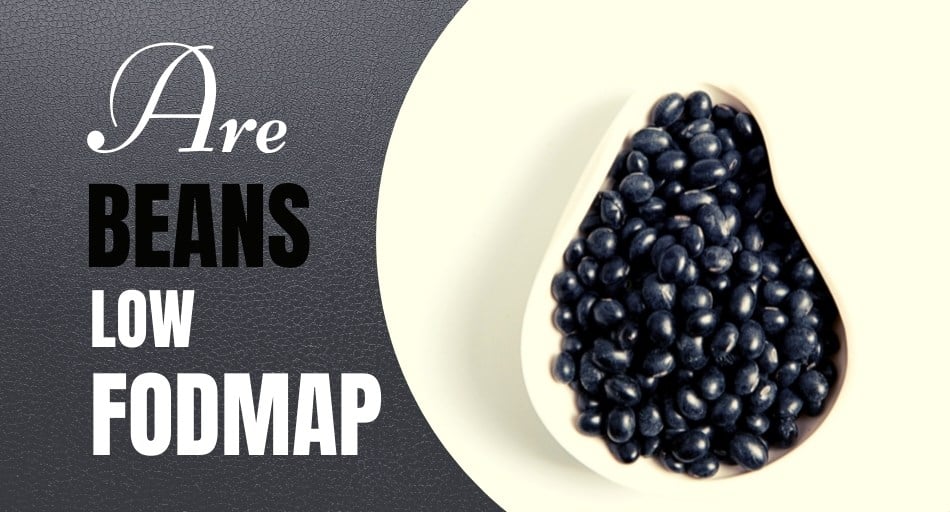
This is because this dietary plant limits your consumption of indigestible, fermentable carbs that can worsen IBS symptoms.
In order to follow this diet, you have to know which foods are allowed on a low FODMAP diet. This can be hard sometimes, as a lot of foods are high in carbohydrates.
Luckily, there are still many foods you can consume on a low FODMAP diet. For example, if you’re looking to add more protein to your diet, you can choose black beans.
They do contain some carbs, but are they high or low in FODMAPs?
Table of Contents
Are Black Beans Low FODMAP?
Black beans are legumes, which means that they contain a lot of FODMAPs when consumed in large servings. So, if you want to include them on a low FODMAP diet, make sure to stick to small servings.
Aside from this, black beans make for a delicious and healthy addition to any diet. They contain a lot of fiber, protein, and many micronutrients that contribute to good health and disease prevention.
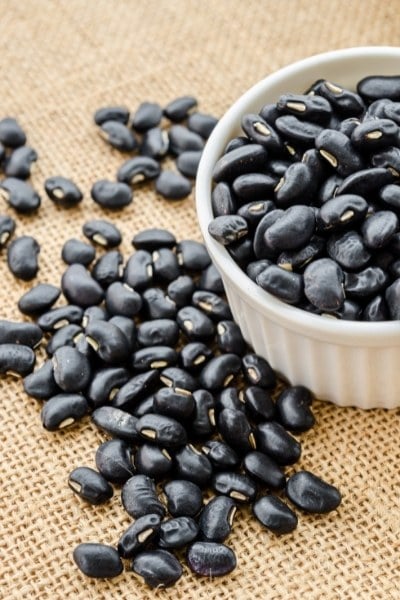
So, if your digestive system tolerates black beans, it’s beneficial to have some every once in a while.
How high in FODMAPs are black beans?
Large servings of black beans are very high in FODMAPs, so they should be avoided. But this doesn’t mean that you can’t have any black beans on a low FODMAP diet.
A serving of less than ¼ of a cup (45 g) of cooked black beans is considered low in FODMAPs, thus safe for people with IBS.
So, if you love black beans and stick to this serving, you can incorporate this delicious food into your diet.
Can you eat black beans on a low FODMAP diet?
In small servings of less than ¼ of a cup, black beans are safe for people on a low FODMAP diet.
Larger servings, on the other hand, are much higher in FODMAPs, so eating them can worsen your IBS symptoms.
Also, make sure to rinse the beans – both cooked and canned – before consuming them. This helps lower the FODMAP content even more. So make sure to do that, especially before cooking black beans.
Is black bean soup low in FODMAPs?
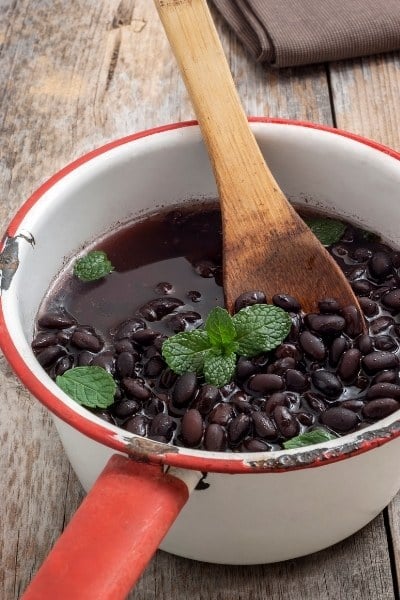
Since black beans are high in FODMAPs and you need a lot of them to make black bean soup, it might be best to avoid black bean soup on a particularly low FODMAP diet.
If you notice that black beans don’t trigger your IBS symptoms, you may try having some black bean soup, though. But make sure to stick to small servings and make the soup yourself.
That way, you’ll avoid any other added ingredients that might raise the FODMAP content of the finished product.
Are canned black beans low in FODMAPs?
Canned black beans tend to be rinsed before the canning process, so they can be lower in FODMAPs than cooked black beans. This may allow you to consume more in one sitting.
But it’s still recommended to rinse them from the brine before eating to lower their FODMAP content even more.
Are black beans good for you?
Black beans are incredibly nutritious. They contain very little fat and a lot of fiber and protein.
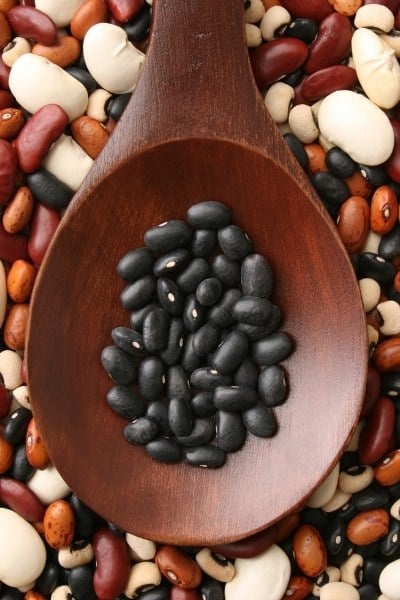
In fact, a serving of ½ cup of cooked black beans contains 7.5 g of fiber, which equals 30% of your daily need for this nutrient.
Black beans contain both soluble and insoluble fiber, so eating them gives you benefits of both.
Because of that, you’re less likely to experience various digestive system issues, such as constipation, indigestion, and even heartburn.
Black beans also contain 15% of your daily need for protein in a ½-cup serving. Because of that, black beans make for a great alternative to meat and other protein sources for those following a plant-based diet.
Protein helps fill you up after eating, reducing your overall calorie intake. Because of that, a diet high in protein can be beneficial for weight loss. In addition, protein helps build lean muscle mass and boost your metabolism.
So, make sure to include a lot of high-protein foods in your diet.
A ½-cup serving of cooked black beans also provides you with 32% of your daily recommended need for folate.
Also called vitamin B9 or folic acid, this micronutrient is crucial for the formation of red blood cells as well as for the healthy growth of all your cells.
Folate is also important during early pregnancy since it reduces the risk of brain and spine birth defects.
Because of that, eating black beans can be helpful, especially during pregnancy.
In addition, black beans provide you with a large dose of copper.
This mineral works together with iron, helping it form red blood cells. Copper is also crucial for healthy bones, blood vessels, nerves, and immune function. Because of that, it reduces your risk of bone fractures and osteoporosis.
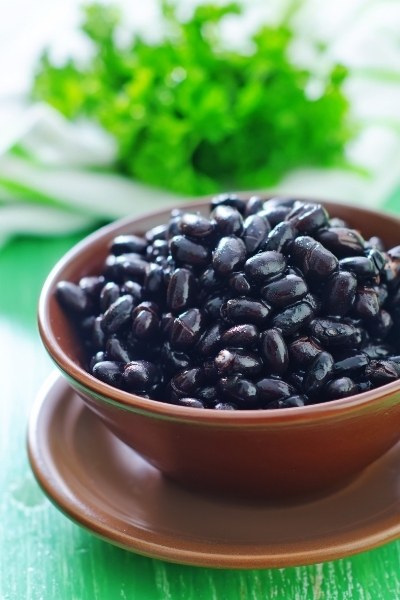
Studies also show that black beans are rich in antioxidants. These powerful plant compounds help flush out free radicals from your body, preventing oxidative damage to your cells.
As a result of that, you have a lower risk of diabetes, heart disease, and even cancer.
Other studies show that eating black beans can help protect your heart by lowering the levels of ‘bad’ cholesterol in your body.
The plant compounds found in black beans prevent plaque buildup in your arteries, lowering your risk of coronary disease and heart attacks.
So, including black beans in your diet can help you stay healthy in various ways.
Conclusion
Just like all legumes, black beans are high in FODMAPs. But if you consume small servings and rinse them before eating, you can include some black beans in your diet without worsening your IBS symptoms.
Adding some black beans to your diet is also beneficial, as they’re rich in fiber, protein, and various other nutrients that contribute to good health.
So, if you don’t experience IBS symptoms after eating black beans, try having some from time to time.
Sources: Nutrition Data, PMC, and The North American Journal of Medicine and Science
